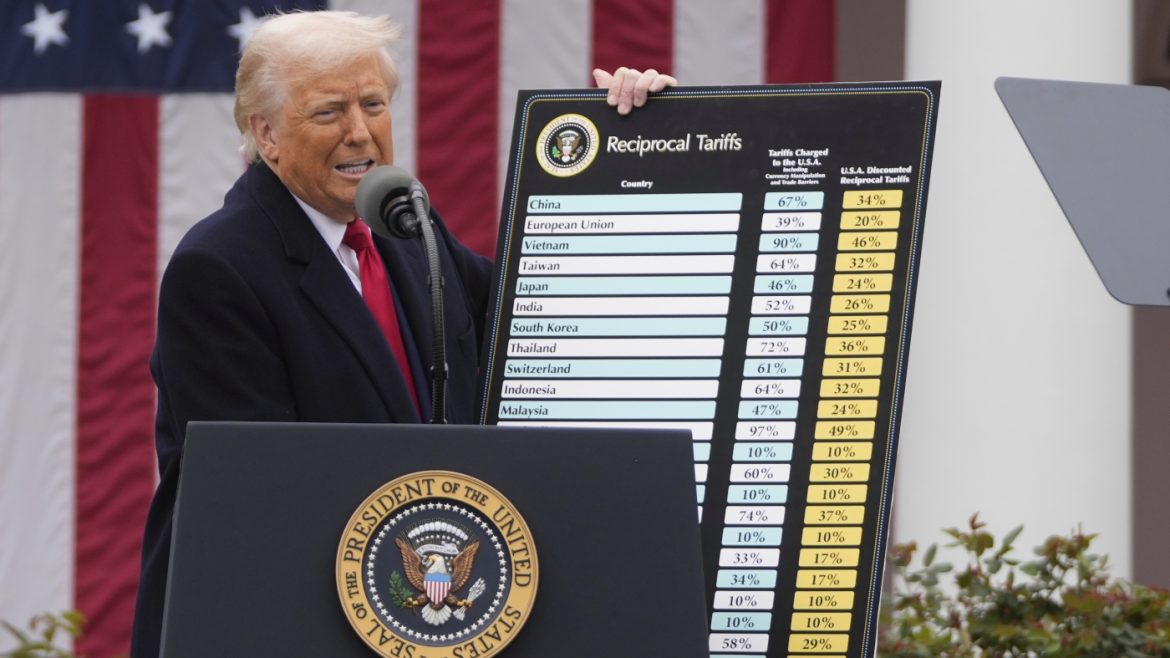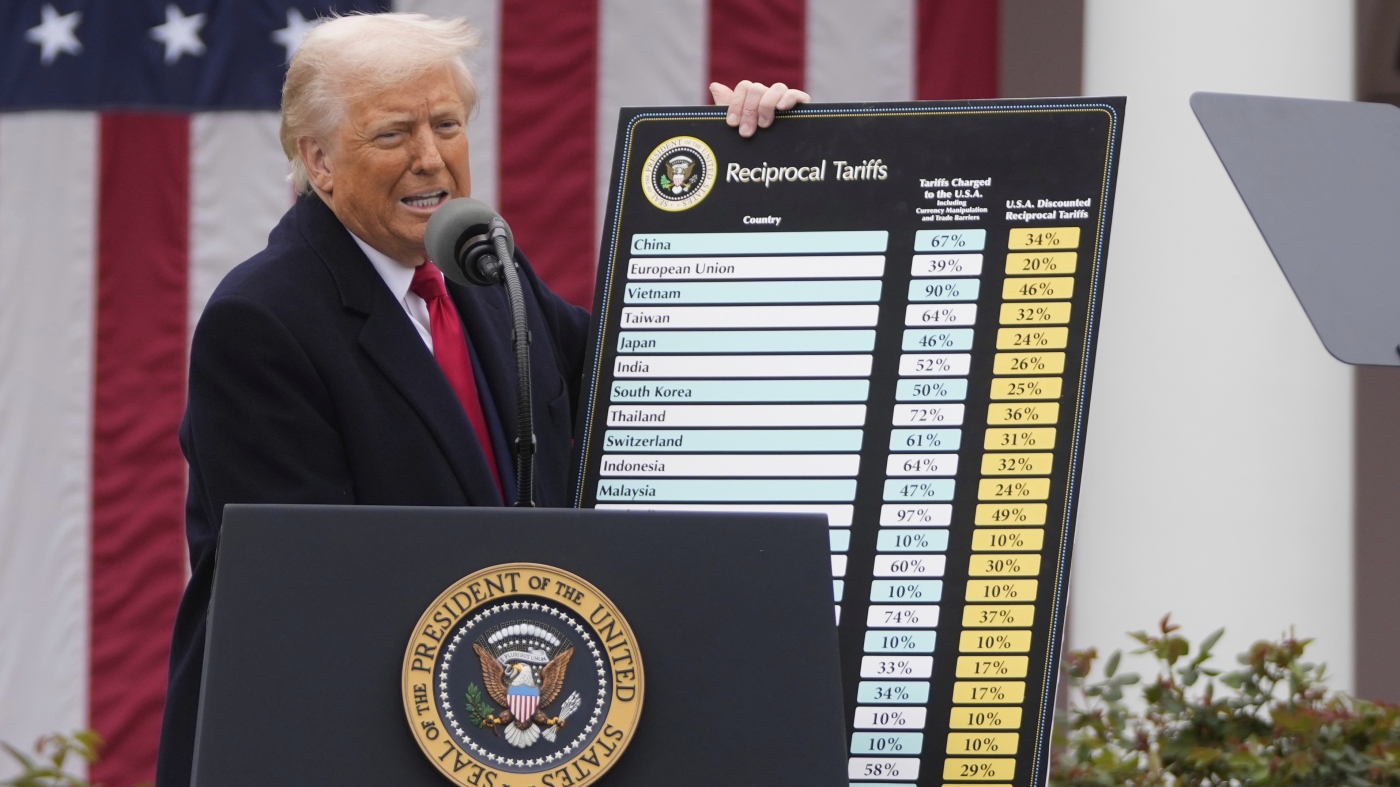A Judicial Check on Presidential Power: Blocking Trump’s Emergency Tariffs
The recent ruling by the U.S. Court of International Trade marks a significant moment in the ongoing tug-of-war between executive authority and judicial oversight over trade policy. This federal trade court decisively blocked former President Donald Trump from imposing broad tariffs on imports under the guise of emergency powers. The decision has wide-ranging implications for the boundaries of presidential power, trade policy stability, and the scope of economic emergency legislation.
—
Background: The Emergency Powers Tariff Controversy
President Trump attempted to invoke a law dating back to 1977, often referred to as an emergency-powers statute, to justify imposing sweeping tariffs on a wide array of imports. This law was originally intended to provide the president with tools to respond swiftly to national emergencies threatening the U.S. economy or security. Tariffs, as duties on imports, are a chief instrument of trade policy that can shape international commerce, affect domestic industries, and influence diplomatic relations.
The administration’s rationale for these broad tariffs rested on addressing trade imbalances and protecting key sectors of the economy. Trump’s trade policy was famously aggressive, labeling certain imports as threats to national economic security and national interests. However, this approach was met with immediate legal challenges questioning whether the president had clear authority to levy such tariffs under this emergency statute, particularly given the broad economic implications and potential retaliatory risk from international partners.
—
The Court’s Decision and Reasoning
The three-judge panel of the U.S. Court of International Trade thoroughly reviewed the arguments and concluded that the emergency-powers law did not confer upon the president the authority to impose such extensive tariffs. The ruling emphasized that the statute’s language did not explicitly authorize tariffs as a remedy within the framework of economic emergencies, particularly when considering the broad and sweeping nature of the tariffs proposed.
Importantly, the court rejected the administration’s expansive interpretation of the emergency powers, stressing the legislative intent behind the statute and the need for clear congressional authorization when executive action significantly affects trade policy. The judges highlighted the risk of unilateral executive action upsetting the balance Congress seeks to maintain—balancing free trade promotion with protectionist measures.
Moreover, the court noted that the trade deficit rationale alone did not satisfy the emergency threshold required by the law, underscoring that mere economic concerns do not automatically equate to an emergency warranting drastic tariffs.
—
Implications for Trade Policy and Executive Authority
This ruling represents a clear judicial rebuke of the Trump administration’s aggressive use of emergency powers to shape trade policy. It curtails the president’s unilateral authority in imposing tariffs under this specific law and affirms the judiciary’s role in checking executive overreach. For any future administrations considering similar actions, the decision serves as a legal benchmark requiring explicit legislative backing or alternative avenues to enact trade restrictions.
The decision also raises important questions about the future of trade policy in the United States. Trade wars, broadly defined by reciprocal tariffs and retaliatory actions between nations, carry complex consequences—disrupting supply chains, raising costs, and fueling geopolitical tensions. By limiting the president’s ability to swiftly impose tariffs under emergency powers, the court has potentially placed a brake on sudden tariff escalations, encouraging a more measured and congressionally coordinated approach.
—
The Broader Context: Balancing National Security, Economy, and Law
Trade is an inherently multifaceted policy area involving economic interests, national security considerations, and international law. Emergency powers are meant to address urgent threats, but applying them to routine economic frustrations or trade deficits challenges the balance of powers and governance.
The court’s ruling essentially advocates for a rigorous, legalistic standard before branding an economic condition as an emergency justifying severe trade restrictions. It implicitly underlines that democratic governance and the legislative process must steer complex trade policy, rather than broad executive discretion.
—
Conclusion: A Defining Moment in Executive-Legislative Relations on Trade
The federal trade court’s blocking of President Trump’s sweeping tariffs under an emergency-powers law is a landmark assertion of judicial oversight over executive actions in trade. It curbs what the court viewed as an overreach, safeguarding the established balance among branches of government on trade matters.
This case illustrates the ongoing tension between presidential powers to address perceived economic threats and the necessity of legal clarity and congressional involvement in shaping trade policy. Going forward, this ruling is likely to deter presidents from unilateral tariff impositions under similar statutes without clearer, specific congressional mandates, fostering more stable and predictable trade policy environments.
Ultimately, the decision underscores the complexity and seriousness of wielding tariffs as economic weapons, and the essential role that courts play in maintaining the rule of law amid shifting political and economic landscapes.


